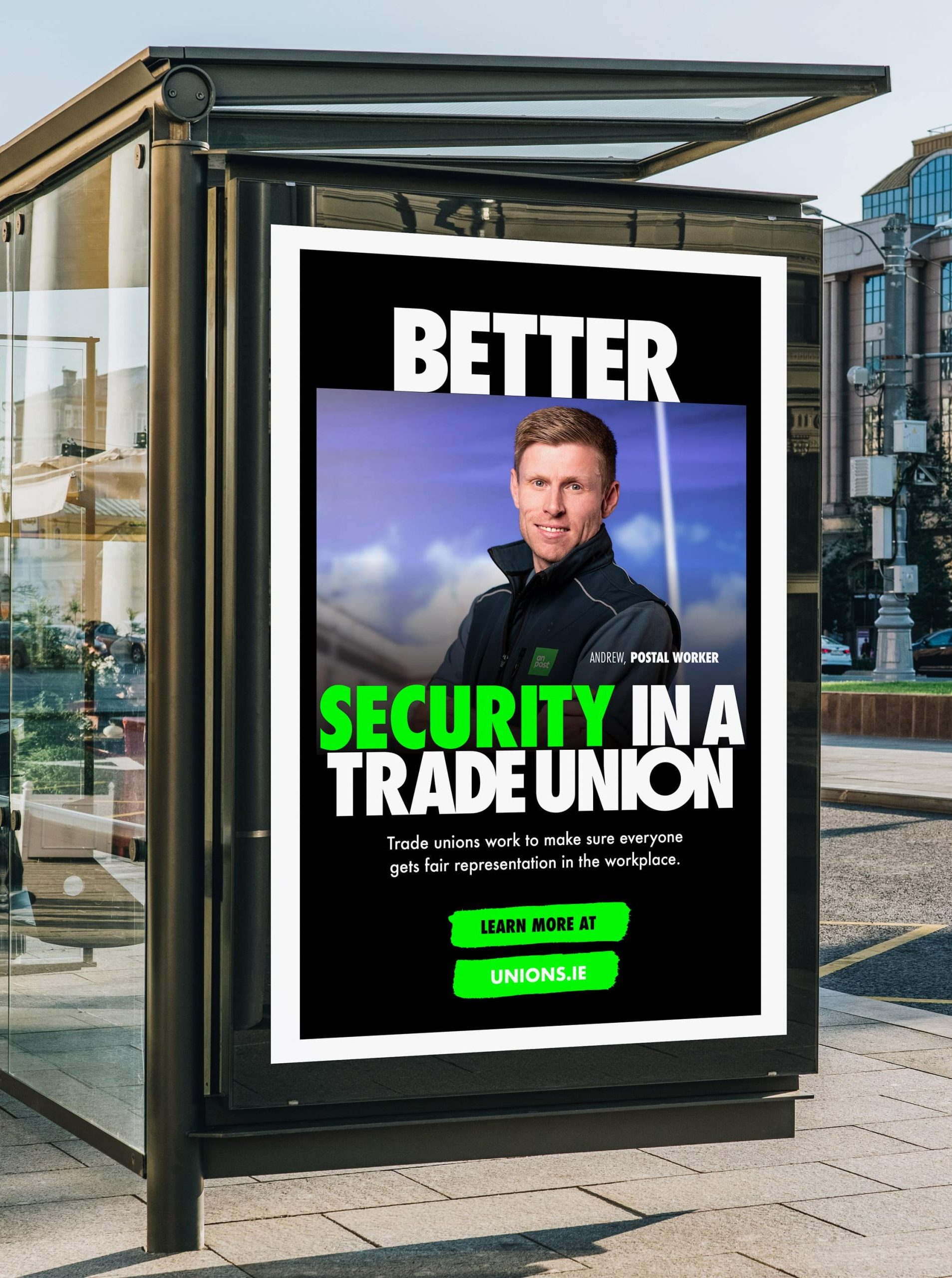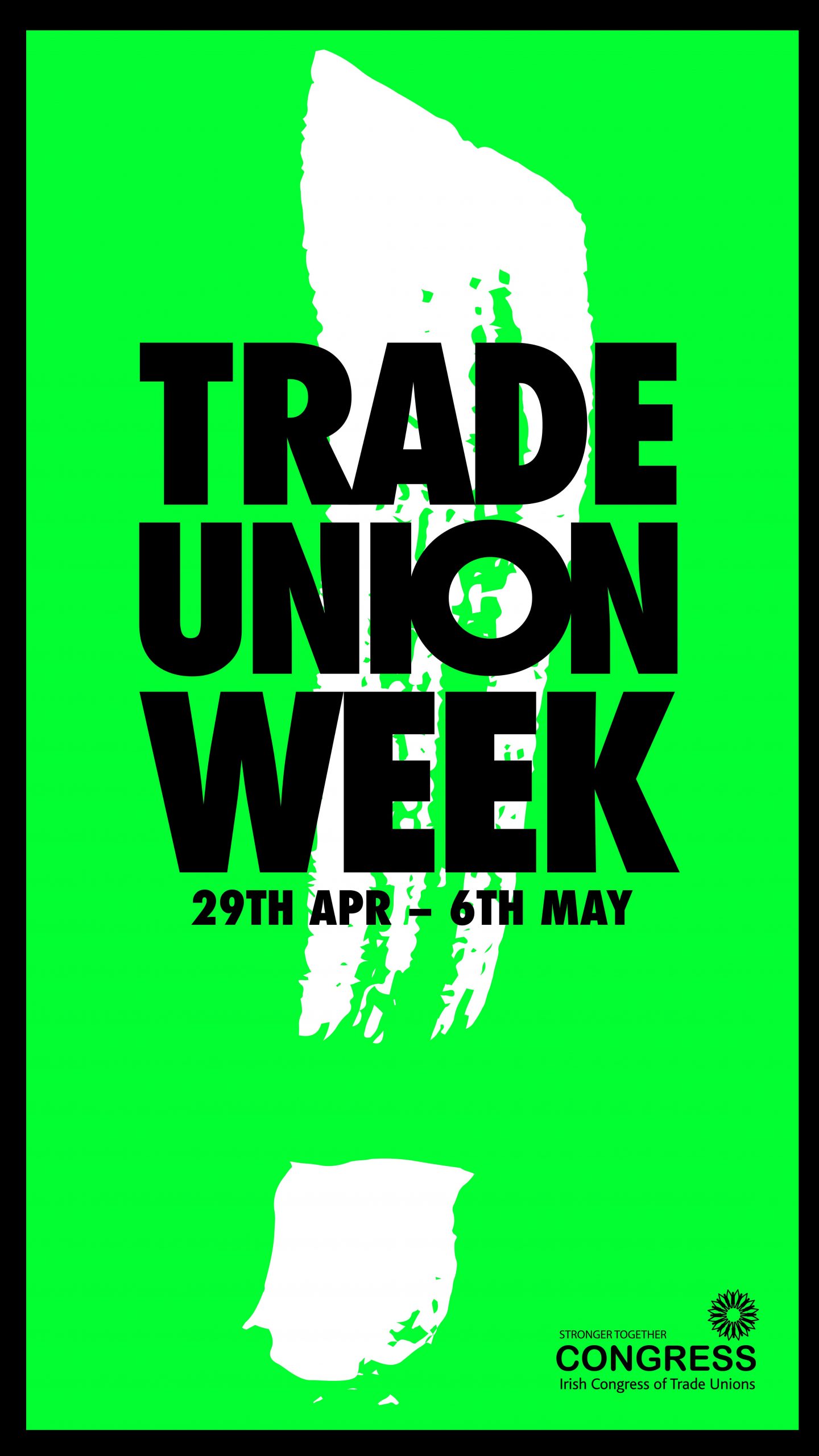Better in a Trade Union Campaign
Background
In 2023 Language was commissioned by the Irish Congress of Trade Unions (ICTU) to create a campaign to support trade union membership recruitment in Ireland. With 44 affiliated trade unions in Northern Ireland and the Republic of Ireland, ICTU is the largest civil society organisation on the island of Ireland.
Focus groups were conducted across the island of Ireland to understand public perception and interest in trade unions. We learned the factors that might influence or motivate them to become members along with reasons for not joining. We followed this with quantitative research to identify the scale of potential growth for trade union membership in Ireland and verify the prevalence of views revealed in qualitative groups. Interest was strongest amongst younger cohorts (18-34), with 44% of those currently employed expressing an interest in joining. Our research showed that an effective campaign would have to be informative and relevant to a diverse base of public and private sector workers. It identified and linked all benefits of trade unions in terms of the individual member; for me and my family, for my colleagues, for people in my profession or trade, for our wider community and society.

Research
Development of the campaign strategy resulted from a consultative and collaborative process involving the campaign team, ICTU Executive, Project Steering Group and Expert Group of communications and organising teams. This process ensured that affiliate unions were involved at every stage of development, and that every stage benefited from the collective experience and knowledge of the movement. External expertise and fresh perspectives combined with the deep understanding of the trade union movement resulted in a level of creativity, energy and authenticity that could not have been achieved otherwise.
Creative Development
Better in a Trade Union included in-person events, branded materials, press and media engagement through to paid social media and digital video advertising culminating in Trade Union Week which took place around May Day 2024. The campaign was designed to build a public/social consensus while supplementing and supporting co-ordinated workplace-level recruitment activity by individual unions. The success of this integrated approach was underpinned by a customisable campaign communications toolkit, consultations and briefings with representatives of communications and organising teams from participating trade unions.
Our core message was that everyone in work benefits from unions through their conditions of employment to wider workplace and employment rights/entitlements. Trade unions are a fundamental pillar of public policy development; representing all working people and their families, their communities and wider society.

Impact
Better in a Trade Union provided a platform for Trade Union members to share their experience of membership and what it has meant for them, their families and their colleagues. These interviews provided the material for all campaign advertising in video, social media and print.
With a total audience reach exceeding 3 million, the campaign effectively utilised paid advertising, media relations and digital communications to amplify its message. Notable achievements include national and local media coverage of the launch of Trade Union Week. The campaign provided a unique opportunity to renew focus on trade unions, create more awareness among potential members and foster positive collaboration within the trade union movement across the island of Ireland.

